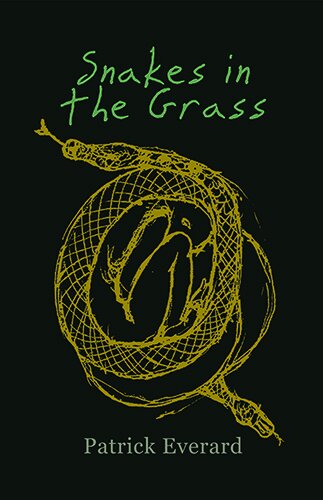About a Boy – from Batac
/Book Review:
Snakes in the Grass, by Patrick Everard
University of the Philippines Press, 2021
The story begins with a boy in Batac, Ilocos Norte – and it is not about a young Ferdinand Marcos; it’s about a boy who witnesses the latter’s rise to absolute power.
While the author liberally deals with the late dictator himself – and this is fact-- the fictional (or allegorical) boy tells it from close quarters, from a bird’s eye view. The boy is the narrator telling the reader how a man like Marcos was created by politics.
Year by year, we see the growth of this boy as we see how Marcos rises from being a convict to becoming the most powerful man of a country that he will ruin.
Everard paints the countryside of Batac with an accurate sense of a Philippine setting, as if he might have been born and raised there. But his British English betrays him; the book shows it was evidently written by a foreigner who does not disguise the fact that he is an outsider looking in into the making of history.
Growing up in England in the ‘70s and ‘80s, Everard had heard stories of Marcos in the BBC and found them intriguing, not knowing that he would move to the Philippines in 2004 and write his first novel, Manila Boy (2010), after which he wanted to write something far more serious.
Patrick Everard
“It always surprised me by their lack of knowledge or even interest in that era,” he said by email, on what he discovered when he talked to ordinary Filipinos about the dictatorship.
Everard lived on Bantayan island in Cebu province for eight years before moving to Manila, and he is in the process of moving back to Britain. He has also recently written a children's book, Stardust and Her Happy House, and is now contemplating writing poetry. “I certainly would never think of myself as a writer, just someone with a lot of spare time, who enjoys telling a good story.”
Away in England when the National Book Development Board of the Philippines announced the winners, Everard’s Filipino partner received the award on his behalf during ceremony marking the 40th year of the National Book Awards, which was held at the renovated art deco Metropolitan Theater in Manila on May 13.
“One of my primary objectives for writing Snakes in the Grass was to help younger Filipinos better understand their history during that time,” he added. “My protagonist is Filipino, and it's very much a story written to appeal to a Filipino readership. However, I also wanted it to be of interest to a broader English-speaking audience, with my own mark on it.”
In the novel, the reason the boy’s name is Saduj will be unearthed by Marcos in due time, near the end. It is a tricky literary devise, yet somehow Everard manages to pull it off, mainly because the chronological sequence of events flows along the waves of the drama. You want to know something about this boy, but the boy wants us to know who Marcos really was, and the denouement, as in real events, is inevitable.
That the novel starts in Batac already provides character to the man and the boy, and how their friendship flourishes through the years. The boy is lost in his personal tragedies – reflecting the chaos and class divide of a provincial town – when the young Marcos takes him in. In jail while awaiting trial for the murder of his father’s political rival, Marcos uses the boy as his tool, his protégé so to speak, to find his way out of prison.
As early as then, we already know that Marcos is so brilliant he plots his life to have everything he wants: ruling a land that he would practically own, marrying a beauty who plays to the tune of his game, surrounding himself with cronies who appreciates his mind and enrich themselves.
“Year by year, we see the growth of this boy as we see how Marcos rises from being a convict to becoming the most powerful man of a country that he will ruin. ”
Saduj tells all of that, one event after the next, rolling the years forward, from good to bad, and from bad to worse. Anyone who lived through those “dark years” would go through a visceral experience reading this novel, feel a strange punch in the stomach to remind us of the birth and destruction of martial law. In these times of historical amnesia, this book not only tries to jolt a collective memory, but also sits in judgement in place of the boy.
Everard’s plot is simple: he’s written what has already been written many times over. But no one has deployed a character like Saduj, who at first might be mistaken for Marcos’ alter ego; but no, the boy grows up, questions the actions of powerful people, and becomes the conscience that recognizes the “snakes in the grass.”
It puts the Filipino reader on an equal footing with the protagonist, amplifying solidarity and rendering empathy in narrating the rise of a man called Ferdinand Marcos and how he plunged the country into the perils of martial law. The plot is without cultural bias and goes to great lengths to use proven information.
Everard shows a deft hand in setting his fiction in one of the most turbulent times in our history.
Criselda Yabes is a writer and journalist based in Manila. Her most recent books include Crying Mountain (Penguin SEA) on the 1970s rebellion in Mindanao and Broken Islands (Ateneo de Manila University Press) set in the Visayas in the aftermath of Typhoon Haiyan.
More articles from Criselda Yabes





